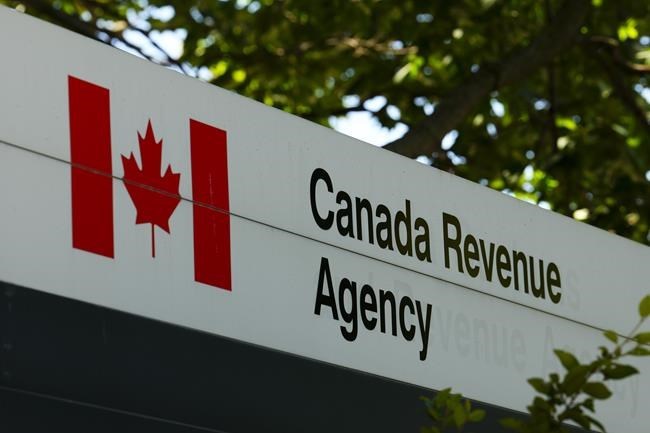
<p>Canadian Revenue Agency (CRA) national headquarters in Ottawa on June 28, 2024. THE CANADIAN PRESS/Sean Kilpatrick</p>
February 19, 2025 - 11:55 AM
OTTAWA - The federal government has confirmed that small businesses will have to pay tax on their carbon rebate, despite government promises otherwise, because Parliament can't currently pass legislation to make the payment exempt from income taxes.
But if legislation passes to do that the government says the businesses can apply for a rebate for the taxes paid on their rebate.
Dan Kelly, president and CEO of the Canadian Federation of Independent Business says the situation is a "mess."
Smaller and medium-sized businesses without a large carbon footprint pay the carbon price on fuel inputs the same way an individual consumer does, including buying gas for fleet vehicles or heating and powering their offices.
Initially the government was going to set aside seven per cent of revenues collected from the consumer carbon levy to provide funding to smaller businesses to reduce their energy use. But those programs never worked, and by 2024 more than $2.5 billion in carbon price revenue was owed to those businesses from five years of paying the levy.
In the 2024 budget, then finance minister Chrystia Freeland said the money would be paid to 600,000 small and medium businesses, and those payments were finally paid in December.
In November Freeland declared that those rebates would be "tax free."
But legislation to make that happen never happened amid the filibuster that stalled all business in the House of Commons throughout the fall, and now the Liberals' decision to prorogue Parliament until the end of March.
Marie-France Faucher, a spokesperson for the finance department, said in a statement the government is committed to making the rebate tax-free. Until then, small businesses will continue paying taxes on carbon rebates.
"A legislative amendment to implement this change will be tabled at the earliest opportunity," Faucher said in an email.
That could be months away still.
Parliament is currently prorogued until Mar. 24 but it's widely expected that an election will be called before then by the new Liberal leader, and if not, that the opposition parties would trigger an election soon after.
Once legislative steps have been taken, Faucher says taxpayers who have already filed their returns could file an amended tax return "to have their taxable income for the year adjusted accordingly."
The department didn't confirm exactly how small businesses would be repaid.
The CFIB wants Parliament recalled to pass legislation to make the rebate tax free and increase the share of revenues paid to businesses to nine per cent. It also wants the government not to raise the levy on April 1. The price is scheduled to go up $15 per tonne each year until 2030.
Kelly says he has concerns about whether small businesses will be paid back, especially given that carbon tax rebates may not be a priority for any future government.
"The Conservatives have informally told us that they will make good on this and make it tax free," said Kelly. "I am concerned that if Freeland, Carney or the Conservatives kill the carbon tax, that somehow the billions that have been collected don't just disappear in the ether."
If legislation passes, Kelly says making an adjustment to their tax returns would be a lot to ask of small businesses and that many would just forget to do so. He says he expects that those who do file an adjustment would be paid back by cheque or a credit to their business' CRA account.
"There's a whole bunch of additional hoops and question marks still before this thing is settled," Kelly said, noting the upcoming election and the need for legislation to be passed in Parliament. "We've got enough political uncertainty, economic uncertainty, we sure don't need to have tax uncertainty on top of that."
This report by The Canadian Press was first published Feb. 19, 2025.
News from © The Canadian Press, 2025